This spring, 31 faculty members said good-bye to the Wellesley community—a larger number than usual due in part to the College’s generous Voluntary Retirement Package (see “Building for the Future” ). When some of these faculty members arrived, parietals were in effect, the Science Center was simply Sage Hall, and President Paula Johnson was an elementary schooler in Brooklyn, N.Y. We asked professors retiring this year to look back at their time at Wellesley.
Margery Sabin
Lorraine C. Wang Professor of English
You first arrived at Wellesley in 1966 for a two-year appointment. What was it like?
The students were excellent, but I wasn’t the only one on campus who found it a strange place. For example, the women on the faculty were assigned on specified dates to pour tea before Academic Council for the rest of the faculty, the promise of an early marriage was the prize for winner of the senior Hooprolling contest, and there was no easy way for students to get off the campus.
When I returned in 1970 after two years in Washington, D.C., everything seemed different. There was the MIT exchange, and a bus to go with it; tea-serving included male faculty, eventually bringing the whole ritual to an end; cars were permitted for students. More significantly, the Civil Rights and antiwar movements prominent on campuses everywhere had reached even Wellesley, and the demography of the College had also begun to be more diverse.
How has your research evolved?
Hired in the field of English Romantic poetry, I shifted in the 1980s to work in the 19th- and 20th-century novel, and as the demography of the College and my own interests shifted, I was able in the 1990s to take on postcolonial and specifically Irish and Indian literatures and cultures as central concerns. Faculty reinvention over time has been a stimulating feature of the Wellesley English department.
What are some accomplishments you are most proud of?
As an old-timer on the faculty, I am … proud that I was able 10 years ago to use my secure, tenured position to advance new ventures for younger faculty, most notably in ushering an interdisciplinary program in South Asia studies through many bureaucratic hurdles.
Marion Just
Professor of Political Science
What significant changes have you noticed at Wellesley since 1970?
Wellesley is so much more diverse today, ethnically, racially, religion, in terms of economic class. I asked the class once in the early days, “How many of you rent your home or apartment?” It was about 35 students, and no one was a renter. This was relevant to the discussion about land grants in Great Britain at the time of a great urbanization. And it was an important point, because I thought they could relate through that to what a landlord-tenant relationship was. But nobody was a tenant. I don’t think I’d get the same response today.
What was it like being a professor and mother in the early days?
I had a number of alumnae write to me and say that that modeled for them the possibility that one could have children and have a career. So I was very pleased about that. I would bring my children to some events, and it was nice to be able to see that it could be done. I won’t say it could be done easily, but that it could be done.
How has the relationship between media and politics changed?
The problem now is that people use ever more diverse means of getting the news, and they’re not so sure where the news came from. And because of that, it’s been open to manipulation by nefarious forces that want to pose as legitimate journalism operations. In 2016, we saw the Russian interference, and it’s not going to end, and it’s not just Russia.
Frederic W. Shultz
Professor of Mathematics
What are some of your proudest accomplishments?
I never teach a course in the same way twice. For example, in my linear algebra course in my final semester, I’m using a different text than last year. I’m continuing, with slight variations, an ongoing experiment to find the most effective way to distribute and display partial class notes so that students don’t spend as much time simply copying from the board. … My main regret in retiring is not being able to continue that experimentation in the classroom.
What’s next for you?
I plan to continue research, and will enjoy having more time for that. In the last five to 10 years, my research has focused on an area that was new to me: quantum information theory and quantum computing.
What do you hope never changes at Wellesley?
Having Wellesley be an institution where both teaching and research are valued and supported, and where faculty with different strengths are tenured and supported. Having faculty committees and Academic Council continue to play an important role in influencing what happens at the College. Continuing a strong financial aid program to allow the most talented students to attend Wellesley, regardless of their family’s financial circumstances.
What should change?
Encouraging more strongly an atmosphere that encourages intense but civil discussion between those with strongly opposing views, so that participants come to understand better those with views different from their own.
Andrew Webb
Professor of Biological Sciences
How has Wellesley changed since you arrived in 1975?
More of a college as a business and less student-faculty interaction.
What are some of your favorite small, day-to-day things you’ll miss from your time at Wellesley?
Seeing the excitement in the eyes of students who finally “get it.” Meeting the families of graduates at senior breakfast.
How has your research focus evolved during your time at Wellesley?
Dramatically, because Wellesley graciously provided me the opportunity of time and resources to expose our students and the institution to the biotechnology era.
What are your plans after Wellesley?
An encore career in biotech consulting.
What do you hope never changes at Wellesley?
Female-only student body and broad liberal arts curriculum.
What do you hope will?
More opportunities for group learning experiences related to problem solving.
Michael Hearn
Professor of Chemistry
Photograph by Kenny Freundlich
How has Wellesley changed since you arrived in 1977?
One of the biggest changes has been in respect to the use of electronic devices in teaching and research. Email, laptops, hand-held devices and all their kindred have had a major impact on the way things get done—mostly for the better.
What will you miss?
I’ll miss the freshness and eagerness in the entire community on the first day of classes in the fall semester. I’ll miss teaching my seminar course Chem 306: The Organic Chemistry of Drug Design and Discovery, in which class members research in depth the chemistry of a drug of their own choosing.
How has your research focus evolved during your time at Wellesley?
I began as a synthetic organic chemist interested in small-molecule reactive intermediates, and more recently, my work has turned to the preparation of new anti-tuberculosis and anti-leprosy drugs.
What are your plans after Wellesley?
In emeritus status, I plan to continue my laboratory research. I am the editor-in-chief of a scholarly journal in organic chemistry and will also continue in that capacity. I hope to play trains with my young grandchildren.
What do you hope never changes at Wellesley?
I hope the College will always maintain its longstanding efforts for diversity and inclusivity.
What do you hope will?
The severity of Massachusetts winters, but I doubt I’ll get my wish.
Martin Magid
Professor of Mathematics
How has Wellesley changed since you arrived in 1978?
Two things come to mind. First, Wellesley now has a much more diverse student body than it did when I arrived. The second is that there is more emphasis placed on, and support for, faculty research. This has also led to more research opportunities for students.
What small things will you miss about Wellesley?
I will miss my trips to Peet’s coffee and my daily chats with colleagues, hearing about their children, the conferences they’ve attended, etc. I will also miss having the chance to learn new mathematics with a view toward developing a new course.
How has your research focus evolved?
Over the years, I have done research on different subfields of differential geometry, which is the study of curves and surfaces and their higher dimensional generalizations. These subfields grew to include affine differential geometry, conformal differential geometry and, lately, timelike minimal surfaces using a variant of the complex numbers. Each topic required me to learn something new, which I have enjoyed (for the most part).
What are your plans after Wellesley?
In preparation for retirement, I have done some volunteering as a math tutor, which I plan to continue. I also have a few research projects I will work on.
What do you hope never changes at Wellesley? What do you hope will?
I hope the College remains an excellent liberal arts college with a low student to faculty ratio. I also hope that physical books will remain at the heart of our libraries. Finally, I’d like to see some apartment-style dorms built—on my college visits with nieces and nephews, I have seen some housing options that make Wellesley’s look a bit out-of-date.
Martin Brody
Catherine Mills Davis Professor of Music
How has Wellesley changed since you arrived in 1979?
A couple months ago, a student asked me if I taught here before the College had email. I doubled down and said that I taught here before the College had running water. Well, I did teach here before email, and obviously email changed everything—I would say for mostly for the better.
What small, day-to-day things will you miss?
I’ll mention two things, neither of them small but both ephemeral, and both sonic. I’ll miss the sounds that pour out of the practice rooms and performance teaching studios that blend together in the corridors of Jewett. I imagine that almost all music teachers have the experience of hearing the sounds of rehearsing and practicing as part of the ambience of their teaching lives. For me, this mash-up of practicing and rehearsing sounds hopeful, even when you can sense the frustrations involved. … The noise of imperfect music-making is joyous. Another thing I will miss deeply is the high-register roar that each graduating class makes at Commencement. It’s a beautiful vibration that resounds throughout the Commencement tent as the names of the graduating seniors are read. This uninflected sound is the flip side of those practicing sounds in Jewett—not the sound of work, but of a release from work.
What’s next for you?
I will keep doing the academic and creative work I’ve been doing all along. I am writing a piece now for a chamber ensemble, soprano, and a mime based on a medieval werewolf poem. Next up, I hope, is another music theater piece about a talking (singing) carp that gets made into gefilte fish. And lots of travel, especially keeping involved with projects at the American Academy in Rome and the Max Plank Institute for the History of Science in Berlin.
Barbara Beatty
Professor of Education
How has Wellesley changed since you arrived?
When I began teaching in the education department in 1981, Wellesley was a different place than it is today, as was the education department. Committed to multiculturalism and diversity, our new president Nan Keohane helped our student body and faculty become more inclusive. As a former kindergarten teacher in the Boston Public Schools, I was committed to increasing our role in urban education and relationships with local schools. Over the years, with the help of my colleagues, including Barbara Brenzel, who was chair when I came to the College, I gradually expanded the education department. … It’s been an eventful, rewarding 37 years, during which I taught almost every course the department has offered, supervised student teachers, and worked closely with wonderful colleagues.
How has your research evolved?
My research on the history of preschool education has evolved to focus on “disadvantaged” children living in poverty and on the history of the relationship of play and literacy. I’ve enjoyed mentoring young scholars at other colleges and universities, some of whom are my former students. My specialties, history of education and history of childhood have grown, adding to our knowledge of how American schools evolved and diverse children experienced childhood. My sense of the complexity of education, childhood, schools, and teaching has deepened.
What’s next for you?
When I retire, I’ll have time to finish my book Playing with Letters: The Long Controversy Over When, Why, and How Young Children Should Be Taught and to write about other topics that grab my interest. I’m going to enjoy more time for gardening, travel, and reading, and to be with my new granddaughter. I’ve been privileged to work with countless Wellesley students. Stay in touch.
Adele Wolfson
Nan Walsh Schow ’54 and Howard B. Schow Professor in the Physical and Natural Sciences and Professor of Chemistry
How has Wellesley changed since you arrived in 1985?
Much more interdisciplinary teaching and research; embrace of engineering as connected to the liberal arts; more focus on career and other post-graduation options.
What will you miss the most?
The Ruhlman conference; driving onto campus in the fall at peak of foliage.
How has your research evolved?
My research underwent several shifts over the years. I started out with an interest in steroid hormones and their receptors, moved to other kinds of small molecule/large molecule interactions, including in cancer cells, and later came back to steroids and their control of enzymes in the brain. Alongside this lab-based research, I became interested in how students learn, and worked on several project involving students’ connections between science and nonscience courses, also how they develop in sophistication of understanding chemical principles throughout the curriculum.
What are your plans after Wellesley?
I still have professional obligations—a grant on learning progressions is still active; I chair my professional society’s accreditation committee; I’m on a couple of editorial boards. But aside from that, I am looking forward to exploring both the natural surroundings and community around our new home in northern Vermont: conserving and supporting the environment, working with the local library and schools, and growing our food and feeding ourselves and others.
Also traveling to eclipses (the one in 2024 will go right through our property!), other natural wonders, and to family.
What do you hope never changes at Wellesley?
Need-blind admissions; constant striving towards making the College (and the world) better.
What do you hope will?
The pressure for perfection.
Lynne Viti
Senior Lecturer in the Writing Program
How has Wellesley changed since you arrived in 1987?
Writing, always important in the Wellesley student’s experience, has become more vital than ever. Students realize the role writing plays in their academic journey, and they take full advantage of writing supports: writing tutors, writing courses beyond the first-year requirement, peer review.
Integration of technology into the first-year writing course began around 1996 with sessions in the old Pforzheimer Learning and Teaching Center Mac computer classroom, and has continued today in research deploying electronic databases, use of blogs, Google group, and mixed media within writing courses. The Writing Program itself now includes a Calderwood Seminar in Public Writing/Bioethics for seniors and juniors; Secrets of the Library: Advanced Academic Research and Writing; a writing/sociology course, Learning by Giving: Nonprofit Organizations and American Cities in the Twenty-first Century; and Writing 201, a workshop and tutorial course intended for students who have already taken first-year writing.
What will you miss?
Teaching first semester first-years and watching 15 of them form a tightly knit writing community over the semester. Exchanging ideas for new pedagogies and sorting out thorny teaching problems with my colleagues. Pre-law advising, first year advising. Attending readings and lectures by our faculty on campus. El Table. Teaching the Calderwood Public Writing seminar in law and bioethics. Learning from my students as much as—if not more than—they learn from me. Wellness yoga class at the Keohane Sports Center.
What do you hope never changes at Wellesley?
The College’s commitment to educating women. As a graduate of an all-women’s high school and college and 31 years teaching at Wellesley, I continue to support the option of single-sex education for women, at every level.
Nora Hussey
Director, Wellesley College Theatre
How has Wellesley changed since you arrived in 1990?
The students are even more driven and focused on life after Wellesley. Some of this is admirable and positive, but some is worrisome. The College is taking steps to deal with stress levels, and that is very necessary.
What are some of the small things you’ll miss at Wellesley?
I love the ladies at the café in the Lulu. I would chat with Gloria quite often about current events and raising a male child! I absolutely love sitting by the lake on Sunday mornings with my coffee and the New York Times.
How has your work evolved over the years?
My work in theatre has been immeasurably aided by the wealth of material now available. Because I do a good deal of political/historically based texts the ability to research thoroughly has enhanced and deepened the work with the acting companies.
What’s next for you?
I plan to take up documentary film directing and will begin with a month-long intensive at Maine Media next September. I will also be spending time on the Beara Penisula in Ireland as a starting point for the next phase of this journey.
What do you hope never changes at Wellesley? What do you hope will?
I hope the spirit of being a loving citizen of the world never fades for our students. This school is an amazing and challenging place for everyone. I do hope that all across the campus, the spirit of camaraderie and mutual support that existed in 1990 will be renewed. We need more joy in every area of campus life, and I think it can be strengthened.
Verónica Darer
Senior Lecturer in Spanish
What are your hopes for the College?
First, I hope Wellesley keeps embracing student, faculty, and staff ethnic, social, cultural, and political diversity. Second, I hope the Honor Code keeps working as well as it does. It is a privilege to teach and learn from students and colleagues that hold a high degree of academic integrity. Third, I hope Wellesley professors and students embrace new ways of learning and teaching. Experiential learning, learning and teaching that is rooted on past knowledge and experience, a Freirian (Paulo Freire) pedagogy stemming from “real life” challenges, are some ways in which Wellesley can become an even more exciting and relevant institution of higher education.
What is next for you?
I am retiring close to 70 years old. Even though I think I have some productive working years left, it is time to cede space for talented and gifted academics with new perspectives and energy. In the coming years, I hope to better balance work, family, and friends. Regarding work, one of my plans is to consult in the educational sphere. Concerning family, I intend to spend more time and travel often with my husband, my children, and my grandchildren. With friends, I hope to find time to laugh, dance, and gozar (no translation possible).
What will you miss?
Most of all I will miss my students and colleagues. I will miss the intellectual stimulation of deep discussions. I will miss teaching Span 243: Spanish for Heritage Learners, in which Latinx students are able to examine and develop a more profound understanding for their roots and cultures. Luckily, I will remain in the Boston area, so I will be able to visit and keep in touch with all that Wellesley College offers. So as I thank you, I am saying hasta luego (till soon) and not adiós (good-bye).
Jeffrey Hughes
Lecturer in Biological Sciences
What are some of your favorite things about teaching at Wellesley?
Some remarkable students, who will go on to do wonderful things. The ability to design novel courses, with my department’s endorsement. I introduced Statistics in the Biosciences some years ago, after Corri Taylor (director of the Quantitative Reasoning Program) and I first developed it as a Wintersession course. Also, the seminars: The Biology of Parasites, and Freshwaters: Ecology and Conflict. The stats course was meant to fill a notable void in the bio curriculum. The seminars also filled some gaps. Many students going on to med, dental, or vet schools had little experience with this most important group, the parasites (the most common lifestyle among organisms on planet Earth). And, their intrinsic interest to biologists (myself included) begged to have them included in our curriculum. My interests in not only marine, but also freshwater ecology, led me to conduct that freshwaters seminar and lab for a few semesters. That course integrated basic field and lab aquatic investigations with explorations of policy and politics involving clean water access across the world, and the impending consequences of global climate change to clean water supply for a growing human population.
How has your research focus evolved during your time at Wellesley?
More focus on our local ecosystems, like Lake Waban.
What are your plans after Wellesley?
Playing more music (trumpet) and fishing.
Charlene Galarneau
Associate Professor of Women’s and Gender Studies
What year did you begin teaching at Wellesley?
I began teaching as a part-time visiting assistant professor in 2005—the same year the Lulu Chow Wang Campus Center opened. At that time, I never would have guessed that I’d still be here in 2018!
How has Wellesley changed in the time you’ve been here?
In many ways, so I’ll just note that the curriculum is increasingly interdisciplinary and reflective of important but undervalued knowledges and pedagogies.
What are some of your favorite small, day-to-day things you’ll miss from your time at Wellesley?
My Founders office window opened out toward Green Hall, and I will most certainly miss the bells—and climbing the narrow and uneven stone steps winding up to the second floor of Founders. Walking to and from the Davis Garage via the path between the Shakespeare House and the Physical Plant. Students stopping by my office just to say “hi.” The just-fledged red-tailed hawks squawking in the early summer.
How has your research focus evolved during your time at Wellesley?
Over the years, my work on community justice and health care had both broadened and deepened. I’m immensely grateful for the College’s support in that work.




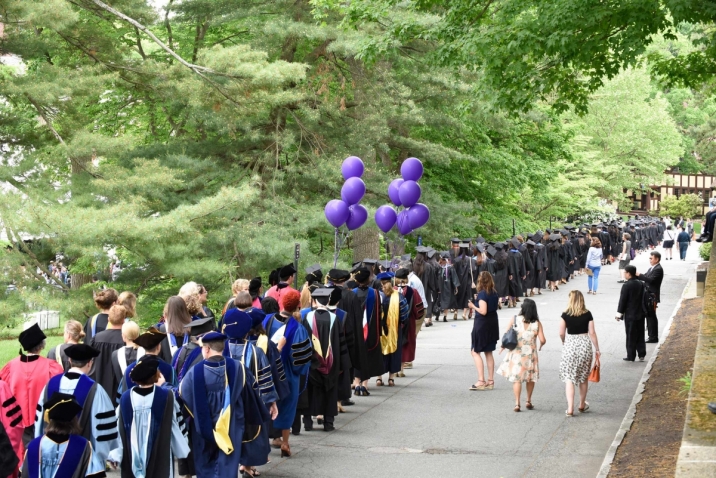
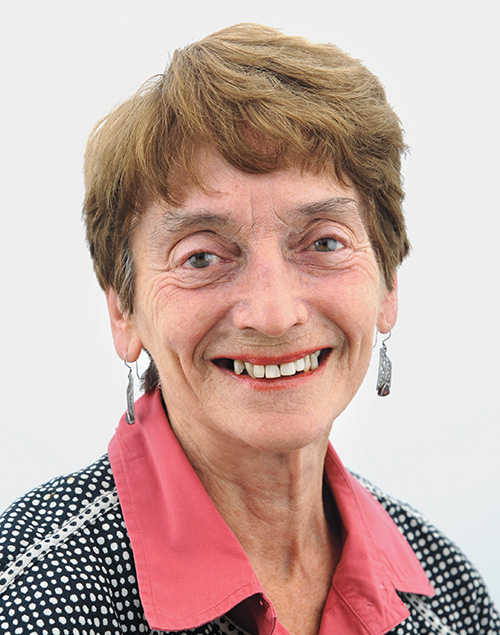
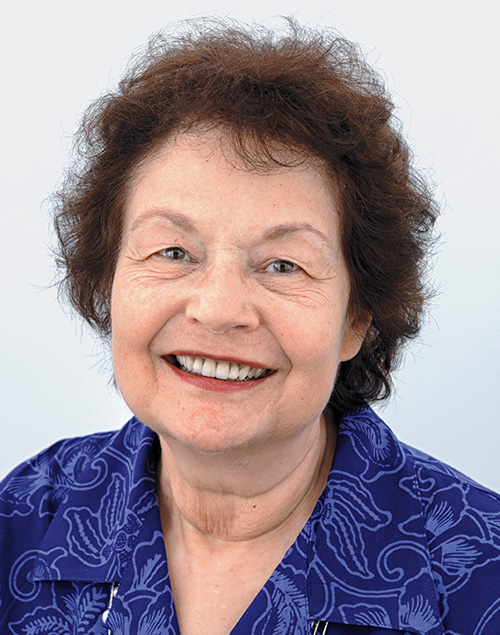
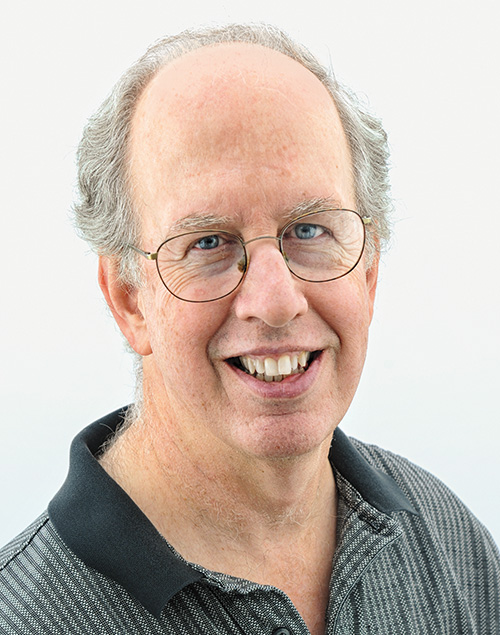

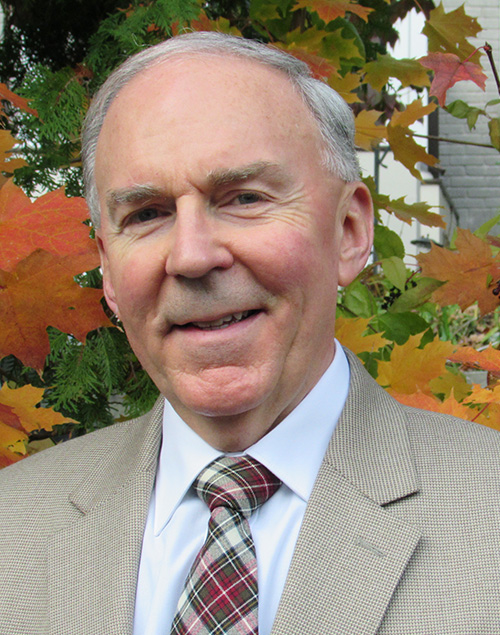

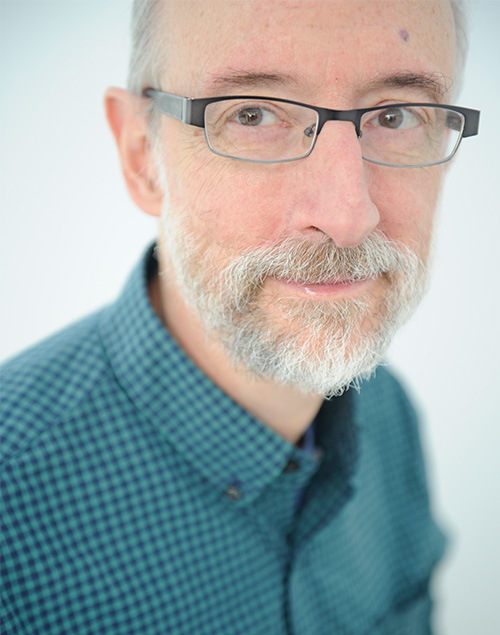

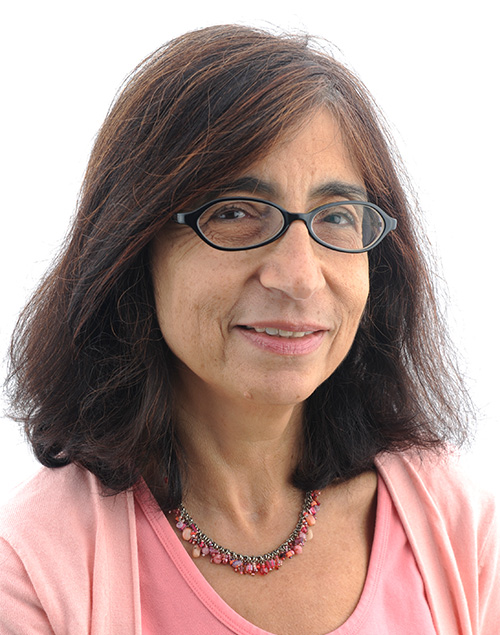
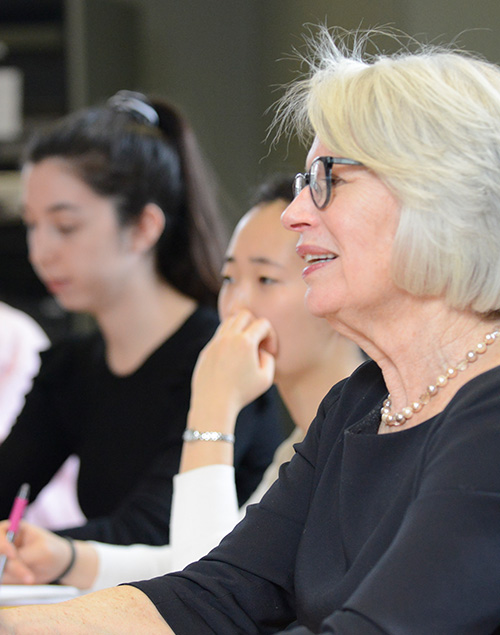
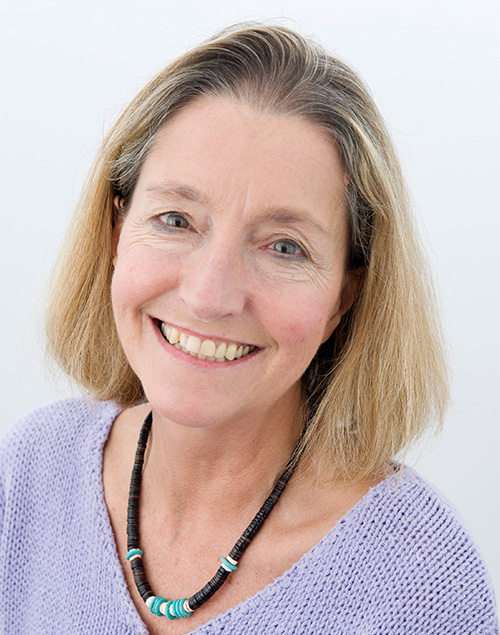
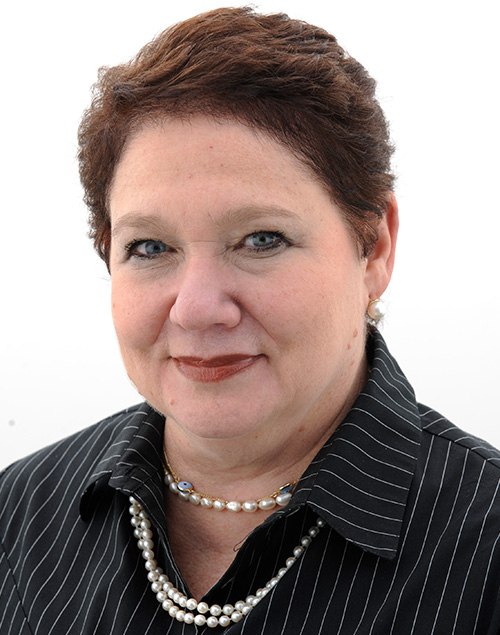

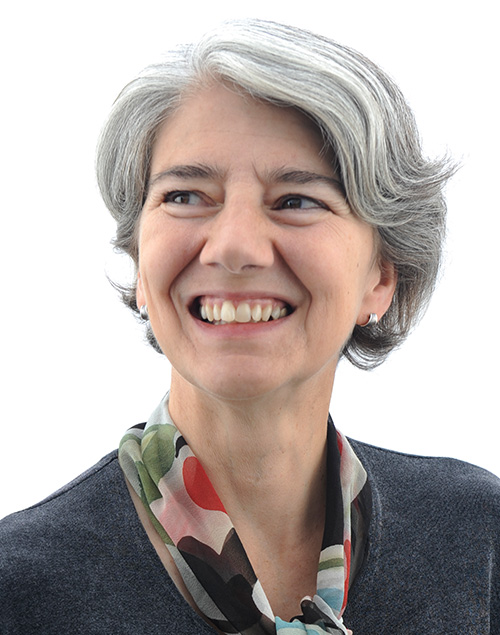
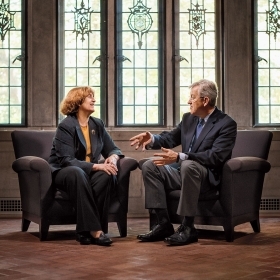
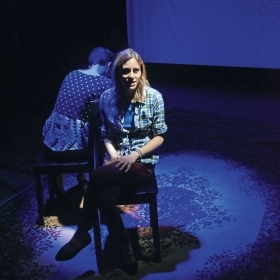
We ask that those who engage in Wellesley magazine's online community act with honesty, integrity, and respect. (Remember the honor code, alums?) We reserve the right to remove comments by impersonators or comments that are not civil and relevant to the subject at hand. By posting here, you are permitting Wellesley magazine to edit and republish your comment in all media. Please remember that all posts are public.